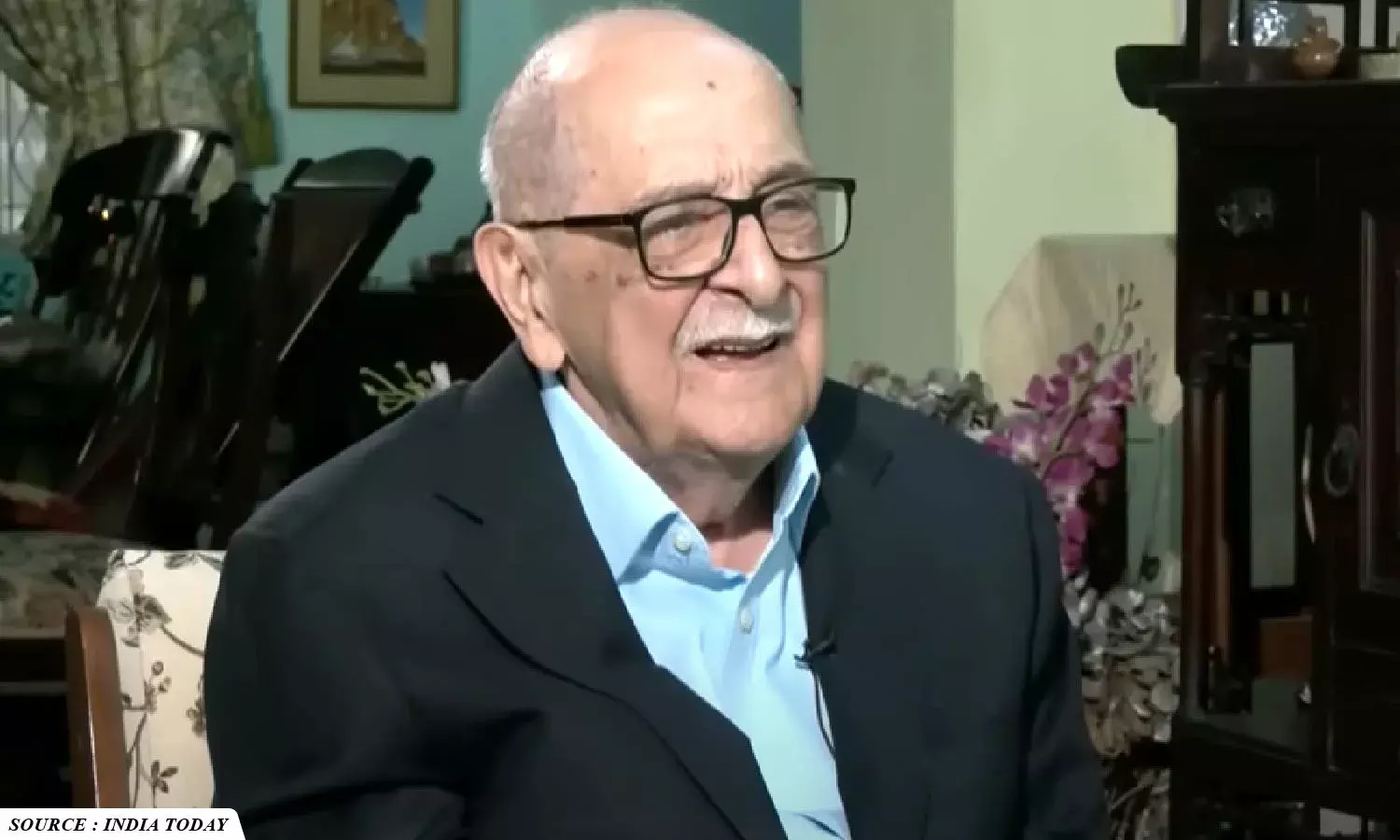Judges' Job Is Not Appointing Other Judges: Fali Nariman Endorses Law Minister's Suggestion To Include Centre's Nominees In Collegium

Senior Advocate and Jurist Fali Nariman has said that it is not the judges' job to appoint other judges, while speaking about the ongoing tussle between the central government and the Supreme Court Collegium.
In an interview given to a private television channel, Nariman also endorsed Law Minister Kiren Rijiju's move to seek inclusion of a nominee of the government in the Collegium. "Speaking for myself, I think the Law Miniter was right when he suggested in a letter, which came before all this happened, namely that why not have one person who is nominated by the Law Ministry in the Collegium", Fali Nariman said.
He also added that he does not think that anyone should have any problem with the suggestion of the Law Minister. He said that the judiciary and the executive should sit together instead of writing letters to one another. "Can't we sit across the table and discuss this? It's far better to discuss something", he said.
The Senior Advocate and former Rajya Sabha member while speaking to India Today, also suggested that there should be regular meetings between the Chief Justice of India and someone from the executive. He gave the example of former Chief Justice of Bombay High Court, M. C. Chagla, who regularly met with the Chief Minister of the state.
Nariman suggested that the solution lies in the Constitutional Amendment Bill 2003, a Bill which was presented by the Vajpayee Government but could not be passed as the Lok Sabha had dissolved. The bill was based on the recommendations of the Venkatachaliah Commission which suggested that a National Commission of five members should be formed with three members being the senior most Judges along with two government appointees and the majority would prevail.
He said that had the commission been formed in line with what Venkatachaliah had suggested, the Judges would have welcomed the same. But the NJAC was struck down because the commission proposed to be constituted, had a total of 6 members out of which two were non-judges, who would have an overriding veto over judges' suggestions.
He further said that “Judges who delivered NJAC Judgment themselves believed that collegium system needed reforms.”
Speaking about the First Judges Case in 1981, he said that, what Constitution provided was that the President would appoint judges in consultation with the Chief Justice of India, "but it didn't happen that way."
He also said that 'emergency' was the time when the system broke down and that was the time when the judges in a way found themselves subservient to the executive because the judges were transferred during the emergency not because of the exigencies of the service or for any convenience or because there were judges than needed in that Court, but it was only because the judges gave judgments that were not favourable to the government of that day.
Fali Nariman remarked that the trust between the Judiciary and the executive has broken down. And to solve this situation, the head of the executive and the head of the judiciary need to meet and discuss things rather than going to the media saying what they say.
He said, "I don't see why there can't be camaraderie, a one-to-one, between judiciary and the executive."
Earlier, the Union Law Minister in a letter to the Chief Justice of India DY Chandrachud had sought the inclusion of the Central Government’s representatives in the Supreme Court Collegium and the concerned State Government’s representative in the High Court Collegium, for transparency.
Later, the Minister had defended the letter by tweeting that the Center's demand is in conformity with Constitution Bench's decision.

